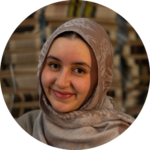To be Indigenous
Indigeneity crosses the oceans and extends beyond the continents. Being Indigenous surpasses pain and pity.
My hurt is not Indigenous, nor is my suffering.
There is an incompetency in reducing my identity to trauma and basing it as a threshold for my indigeneity. As an Amazigh native to Northern Africa, I am indigenous to Tamazgha, not its history of colonialism.
And this definition of indigeneity crosses the oceans and extends beyond the continents. For being Indigenous surpasses pain and pity.
To be Indigenous is to be the land.
When the oppressors, the oppressors’ friends, and the bastard sons failed to conquer the land, they tried to train me to conquer it instead. But I am my land, for my land is me. It is so that when I breathe, the air becomes a part of me. I am bound from the clay of the earth and the water of the sea. I tend for the land and in return, the land tends to me.
To be Indigenous is to be the spirit of my ancestors.
When the oppressors, the oppressors’ friends, and the bastard sons failed to repress me, they tried to repress my mind. But my ancestors’ knowledge is written in the weaves of my braids, in the threads of my garments, and the muscles of my tongue.
To be Indigenous is to be the past, present, and future.
When the oppressors, the oppressors’ friends, and the bastard sons failed to occupy me, they tried to occupy my voice. But my words are echoes of my mother’s, her mother’s, and all who have come before. My stories are intertwined in the ululations carried by the wind.
And this definition of indigeneity crosses the oceans and extends beyond the continents. For being Indigenous surpasses pain and pity.
In Turtle Island, the land is synonymous with the First Nations, Inuit, and Metis people — where the lilting cadence of the wind guides the heart; where the rain replenishes the soil and the soil replenishes the mind; and, as the people care for it, the earth cares for the soul.
In Sudan, the land is synonymous with the Sudanese — where the Nile’s abundance parallels the generosity of its people; where the sand of the desert dunes trickle among the travelers; and the Nuba Mountains stand fierce in pride.
In Palestine, the land is synonymous with the Palestinian people — where the roots of olive trees transcend the claims of the foreigner; where the oranges of Yaffa paint the zest of the people; and the iris flowers reflect collective honour.
In Aotearoa, the land is synonymous with the Māori — where the harakeke plant defines the family unit; where the land is honored as treasure and the people as its protectors; and the earth translates the cosmos beings.
And this definition of indigeneity crosses the oceans and extends beyond the continents.
The context of the Indigenous is abundant and rich. It encompasses life and its cycle, from birth to death, from season to season. It embodies the stories and their orators, the people, and their souls. It travels across lands and laces into spirits.
It is only the oppressors, the oppressors’ friends, and the bastard sons that ridicule indigeneity in the pain and pity enforced upon us. For my hurt and suffering is not Indigenous, and neither is yours.
Associate Opinion Editor (Volume 50) — Yasmine is a third-year student, majoring in History and Anthropology. Her writing is best described as sometimes sarcastic, sometimes radical, and always an excuse to bring up her heritage (and colonialism). She hopes her work with The Medium will inspire conversations, debates, and a path to abandon our deeply rooted stubbornness. In her spare time, Yasmine enjoys reading, knitting, arguing with uncles on politics, and fangirling.



What a beautiful echo that continues to haunt the spaces if this universe.